Related Research Articles

Gipsy Kings are a band of Catalan rumba, flamenco, salsa, and pop musicians, founded in 1978 in Arles and Montpellier, in southern France, who perform mostly in Catalan but also mix in Spanish with southern French dialects. Although the group members were born in France, their parents were mostly gitanos, who fled Spain during the 1930s Spanish Civil War. They are known for bringing rumba flamenca, a pop-oriented music distantly derived from traditional flamenco and rumba genres, to a worldwide audience. They were originally known as Los Reyes.

Binaural is the sixth studio album by American rock band Pearl Jam, released May 16, 2000, through Epic Records. Following a full-scale tour in support of its previous album, Yield (1998), Pearl Jam took a short break before reconvening toward the end of 1999 to begin work on a new album. During the production of the album, the band encountered hindrances such as singer Eddie Vedder's writer's block, and guitarist Mike McCready's entrance into rehabilitation due to an addiction to prescription drugs. This is Pearl Jam's first album to feature former Soundgarden drummer Matt Cameron, who joined during 1998's Yield Tour to replace Jack Irons.
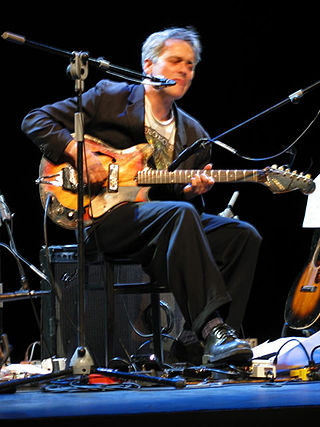
Marc Ribot is an American guitarist and composer.

William Nelson is an English singer, guitarist, songwriter, producer, painter, video artist, writer and experimental musician. He rose to prominence as the chief songwriter, vocalist and guitarist of the rock group Be-Bop Deluxe, which he formed in 1972. Nelson has been described as "one of the most underrated guitarists of the seventies art rock movement". In 2015, he was recognised with the Visionary award at the Progressive Music Awards.

Reeves Gabrels is an American guitarist, songwriter and record producer. A member and guitarist of British band the Cure since 2012, Gabrels worked with David Bowie from 1987 to 1999 and was a member of the band Tin Machine. He has lived in New York, Boston, London, Los Angeles, Nashville, and New York's Hudson Valley. His Nashville-based band since 2007, Reeves Gabrels & His Imaginary Friends, features Gabrels on guitar and vocals.
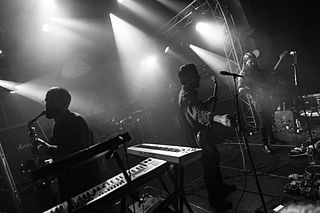
Kayo Dot is an American avant-garde metal band. Formed in 2003 by Toby Driver after the break-up of maudlin of the Well, they released their debut album Choirs of the Eye on John Zorn's Tzadik Records that same year. Since then, Kayo Dot's lineup has drastically changed over the years. Toby Driver is the only founding member of the band still remaining, save for frequent lyrical contributions from former motW member Jason Byron. Up until 2011, the lineup was constantly shifting, and Kayo Dot's sound consistently changed over the years, featuring a wide variety of instrumentation including guitar, drums, bass, violin, saxophone, vibraphone, synthesizers, clarinets and flutes. Underground metal audiences warmly received the group upon its early existence, with the 2003 album Choirs of the Eye and the 2006 album Dowsing Anemone with Copper Tongue both becoming underground hits in the progressive metal scene.

Street Hassle is the eighth solo studio album by American rock musician Lou Reed, released in February 1978 by Arista Records. Richard Robinson and Reed produced the album. It is the first commercially released pop album to employ binaural recording technology. Street Hassle combines live concert tapes and studio recordings.

Michael Sheridan is an Australian guitarist. Having played and recorded with an array of artists his versatility in original music spans the styles of rock, jazz/punk, industrial, metal, and sonic art including glitch & noise. He has released solo works such as Scaleshack,Digital Jamming and collaborations with Nicholas Littlemore and associates. He has been a member of several bands since 1975 including No (1987–1989) with Ollie Olsen and Marie Hoy, which were described as "One of Australias most compelling stage acts incorporating speed metal, hip hop and electro funk". In 1989 he followed Olsen to join Max Q with Michael Hutchence of INXS on vocals. He runs the label Zenith Wa Recordshttps://zenithwarecords.bandcamp.com/

Solefald is a Norwegian avant-garde metal/black metal band that was formed by members Lars Are "Lazare" Nedland and Cornelius Jakhelln in August 1995, with Nedland singing and playing keyboard/synthesizer/piano and drums, and Jakhelln singing and playing guitar and bass. The duo experiment with a wide array of musical styles, frequently work on other projects, and rarely perform live under the Solefald name, leading them to describe themselves as "two stubborn goats pretending to be a band." According to the duo, their name is an Old Norse word for "sunset," taken from one of Theodor Kittelsen's paintings illustrating a poem of the same name by Theodor Caspari, published in the 1901 book Vintereventyr.
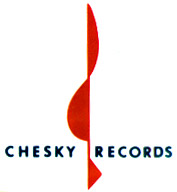
Chesky Records is a record company and label founded in 1978 by brothers David and Norman Chesky. The company produces high-definition recordings of music in a variety of genres, including jazz, classical, pop, R&B, folk and world/ethnic. Chesky artists include McCoy Tyner, Herbie Mann, David Johansen and the Harry Smiths, Joe Henderson, Macy Gray, Chuck Mangione, Paquito D'Rivera, Ron Carter, Larry Coryell, John Pizzarelli, Bucky Pizzarelli, Babatunde Olatunji, Ana Caram, and Rebecca Pidgeon.
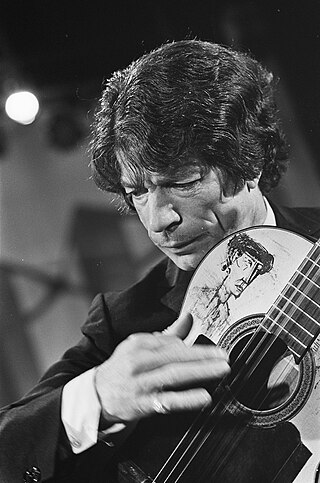
Ricardo Baliardo, better known as Manitas de Plata, was a flamenco guitarist of Spanish Gitano descent born in southern France. Despite achieving worldwide fame, he was criticized for not following certain rhythmic rules (compás) that are traditional in flamenco.

Bob Drake is an American multi-instrumentalist musician and recording engineer. He was a founding member of the avant-rock band Thinking Plague in the early 1980s, and a member of the 5uu's, Hail and The Science Group. He formed his own band, Bob Drake's Cabinet of Curiosities in 2007. Drake's engineering credits include mainstream artists like Ice Cube, Tina Turner and Engelbert Humperdinck.

The Homosexuals are an English punk/post-punk band. The band have been described as "punk visionaries".

Vampire Rodents was a sound collage and experimental music ensemble based out of Phoenix, Arizona, although its core members originally came from Canada. The creative nucleus of the project comprised vocalist and composer Daniel Vahnke and keyboardist Victor Wulf. Daniel Vahnke was primarily influenced by 20th-century classical and avant-garde music, whereas Wulf drew from new age, ambient and synth-driven pop music. Their work also dabbled in big band, bebop, musique concrète, industrial, electro, Indian classical and Greek music.

Devon Allman is an American guitarist, vocalist, songwriter, and record producer. He is the son of musician and singer-songwriter Gregg Allman and has appeared occasionally as a guest musician for Gregg Allman and The Allman Brothers Band. Allman was the founder and bandleader of Honeytribe, also known as Devon Allman's Honeytribe, with whom he released two albums and toured across North America and Europe. Prior to Honeytribe, Allman contributed to several other musical recordings, notably Vargas Blues Band and the A Song for My Father compilation album. He was one of the original members of Royal Southern Brotherhood and contributed to their first two studio albums and toured with them. In 2013, Allman launched his solo career as the Devon Allman Band, and has since released three albums. His latest tour, branded as the Devon Allman Project, features special guest Duane Betts.
Brad Laner is an American musician and record producer best known for his work with the shoegaze band Medicine, which he founded and led.
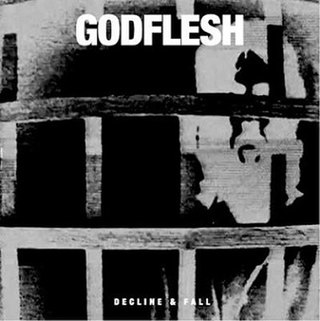
Decline & Fall is the sixth EP by English industrial metal band Godflesh. It was released on 2 June 2014 through frontman Justin Broadrick's own record label, Avalanche Recordings. The EP is the second release by Godflesh since Hymns (2001), following the 2013 single "F.O.D. ". It precedes the group's seventh studio album, A World Lit Only by Fire (2014), and the two were recorded in the same sessions.
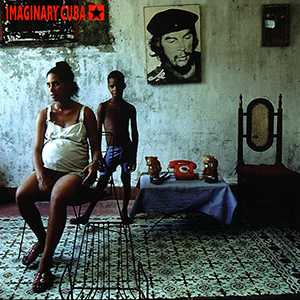
Imaginary Cuba is the ninth solo album by the American composer Bill Laswell, released on September 14, 1999, by Wicklow.

Girlpool was an indie rock band from Los Angeles, California, formed by friends Avery Tucker and Harmony Tividad. Their debut self-titled EP Girlpool was released on Bandcamp in 2014 and re-released on Wichita Recordings later that year. They released their debut album Before the World Was Big in 2015, followed by Powerplant (2017) and What Chaos Is Imaginary (2019). Their fourth and final studio album, Forgiveness (2022), was released on April 29. In August 2022, the duo announced that they will be taking an indefinite break from the band.

Car Seat Headrest (CSH) is an American indie rock band formed in Leesburg, Virginia, and currently located in Seattle, Washington. The band consists of Will Toledo, Ethan Ives, Seth Dalby (bass), and Andrew Katz.
References
- 1 2 3 4 5 6 GP Hall entry in International Who's Who in Popular Music, Volume 4, page 212 (published by Routledge, 2002) -also viewable via Google Books
- 1 2 Description of Industrial Sound Sculpture on Techniques page of GP Hall website, retrieved 28 October 2008
- 1 2 3 4 Sound on Sound Magazine feature on GP Hall by Mark Prendergast in Sound On Sound magazine, April 1989 (hosted on GP Hall's homepage), retrieved 3 May 2009
- 1 2 3 4 5 in Avant Magazine: Feature on GP Hall in Avant Magazine, October 1997 (hosted on GP Hall's homepage), retrieved 3 May 2009